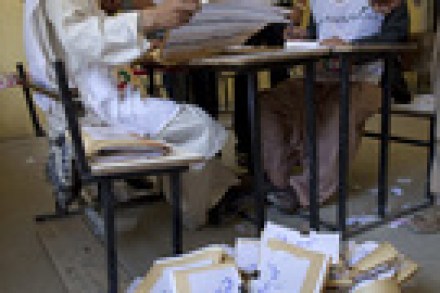What happens next in Afghanistan?
The latest results from Afghanistan’s presidential election are showing that the incumbent President Hamid Karzai has garnered 54.1 percent of the vote after 92 percent of polling stations declared. Crucially, this puts him above the 50 percent threshold needed to avoid a run-off with rival Abdullah Abdullah. But the result has been greeted with derision by observers, while the Election Complaints Commission (ECC) has said a recount and inspection should be done for any polling station where 600 or more votes were cast, or where any single candidate got more than 95% of votes. So what happens next? First of all, expect a fight to develop between the Independent Election

















